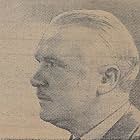The background information about "Lucky Boy" is in many ways much more interesting than the story itself. Back in the mid-1920s, George Jessel starred in the play "The Jazz Singer" and it was a big hit on Broadway. So, it wasn't surprising when Warner Brothers bought the rights to the play that they wanted Jessel to reprise his role. In one of the dumbest mistakes in film history, Jessel refused...as he demanded too much for playing in the film. As a result, the studio recast the film with Al Jolson...and the actor went on to great acclaim for this role. As for Jessel, he still had a successful stage career but he never was known for his work in films.
The weird thing about all this is that "Lucky Boy" is pretty much a reworking of "The Jazz Singer", though there is (thankfully) no black-face number. Instead, the film amps up the schmaltz and the film is just dripping with sentimentality. It also works VERY hard to make Jessel seem like the nicest man in New York, if not the world, and that, to me, is the biggest weakness of the story. Again and again, folks say how nice he is and again and again, the plot makes Jessel seem like a candidate for sainthood...which is a fine trick since he was so incredibly stereotypically Jewish!
Like "The Jazz Singer", the story begins with showing how alienated George is with his very traditional father. But instead of the father wanting him to become a Cantor in the synagogue, George's dad wants him to carry on the family's jewelry repair business. George insists he wants to be an entertainer and the first half of the film is about his struggle to make it big...though the end results seem like a foregone conclusion. The final portion involves George falling for a Gentile girl and his attempts to be accepted. And, like in "The Jazz Singer", it ends with George on stage proclaiming his mother's magnficence.
So is it any good? Yes and no. On one hand, the story is slightly better than "The Jazz Singer". On the other, it really seems like a self-serving vanity project (after all, Jessel himself wrote the dialog) and the film is VERY dated. It's not just dated because it heavily 'borrows' from "The Jazz Singer", but like "The Jazz Singer", it is NOT an all-talking film, as many portions are silent...something not uncommon in 1927-28...but not exactly state of the art in 1929. Overall, an interesting curio but one that just makes you think how foolish Jessel was with his prideful refusal to appear in film as "The Jazz Singer"...and he sure seems to be trying hard to recreate this very same magic.














